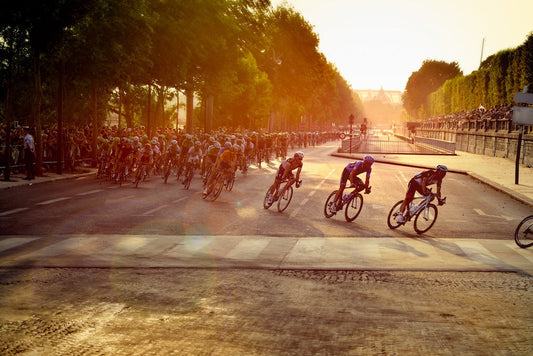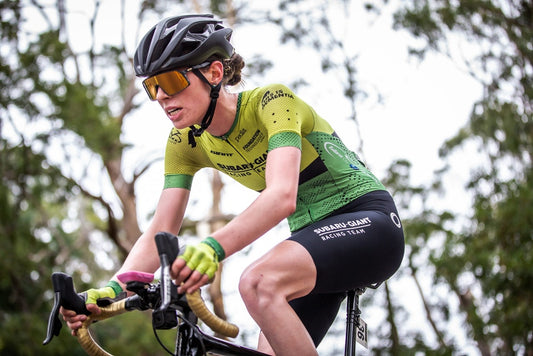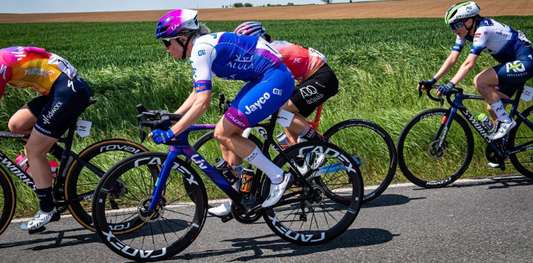Bicycling Australia's Deep Dive into PREPD: The Future of Cyclist Hydration
Reviewed by our Expert Panel
25 June 2020
Bike riders love ‘new’ – new bikes, new kits and new products. But sometimes, we find a product that we like that works for us, and we don’t want to change things up, especially when it comes to personal aspects such as hydration.

Innovation in Hydration: Bicycling Australia reviews PREPD, a groundbreaking hydration enhancer, distinct from traditional sports drinks, designed to elevate athletes' hydration and performance levels.
Backed by Science: With over two decades of research from esteemed institutions like Flinders and Yale Universities, PREPD boosts fluid absorption, potentially transforming the way cyclists hydrate pre- and post-exercise.
Real-World Endorsements: From Bicycling Australia's journalist Karen Forman to UCI WorldTour professionals, many in the cycling community are recognising the tangible benefits of PREPD, especially in demanding conditions and high-stakes races.
Contents

Bicycling Australia journalist Karen Forman trials PREPD – a unique hydration enhancer generating a lot of interest at home and abroad.
Asked to review another new hydration product not so long after I spent a month drinking a brand I liked enough to take it to France on a recent trip for Bicycling Australia, I wondered? Can there be anything better than this? What could be different about PREPD?
Then I spent some time chatting with the PREPD team and learnt a thing or two about this new product. Namely, it isn’t a hydration drink but a hydration enhancer.
So that idea is very new. It meant I didn’t have to quit drinking the product I had decided was ‘my’ hydration drink. I could still have it, but add PREPD to my before and after exercise regime.
The theory was that PREPD, which tastes like a lovely fruit smoothie (the Mango Prime is taken 18 hours before training or racing while the equally as flavoursome Strawberry Recover is taken straight afterwards), works with other forms of hydration in my body (including water), enhancing their absorption.
…The key difference we continue to see with pro cyclists using PREPD is less reduction in post-exercise weight through better hydration…
And as most riders know, with better hydration, an athlete can minimise dehydration, sustain training/racing efforts, recover better and reduce the risk of heat stroke on super-hot summer days.
With that information, I was keen to try some for myself and even hauled the road bike out of storage after a snowy winter to get out there, sweat a bit in the spring sunshine, and see if it worked.

A Major Advance
Until recently, we have not seen any substantial advances in hydration technology since sports drinks were invented. PREPD professes to change this by significantly increasing the absorption of all fluids athletes consume.
Backed by 20-plus years of research and testing through Flinders and Yale Universities, PREPD, as mentioned above, consumed pre- and post-exercise, has been proven to boost the absorption of leading sports drinks and water.
Interestingly, the Prime is taken 18 hours before you clip in. With its smoothie-like texture, minimal sugar and pleasant flavour, it isn’t bad as a nightcap the night before a morning ride.

So how does it work? Why is it so different?
The team at PREPD explained they use patented resistant starch/sustained fibre formulations; this specific sustained fibre has been proven through research to enhance fluid and electrolyte absorption in the gut. As many of us have experienced, often most inconveniently while trying to do a PB in a race or Sportif, when dehydration sets in, it is challenging to rehydrate fast enough to avoid performance deterioration.
Andrew from PREPD said the crippling sensation of fatigue towards the end of a long training session or in competition is caused as much by dehydration as by depletion of fuel stores as is commonly to blame.
Clinical Study
A recent hydration clinical trial of elite AFL players published in the Journal of the International Society of Sports Nutrition acknowledged that fluid deficits exceeding as little as 1.6% could lead to physical and cognitive impairment in athletes.
It found that sports drinks used by athletes were often hyperosmolar; this was known to be suboptimal for rehydration as it did not utilise the absorptive capacity of the large intestine, which could be enhanced by fermentative production of short-chain fatty acids (SCFA) from substrates such as resistant starch – as utilised by PREPD.
The primary outcome markers of hydration were hematocrit (the ratio of the volume of red blood cells to the total blood volume) and body weight.
Across three time-points, hematocrit was significantly lower and body weight considerably higher in sports drinks compared to maise starch.
The study concluded that the combination of the significantly lower hematocrit and increased body weight in the maise starch group represented better hydration at the end of training and following a recovery period and at its commencement. “The magnitude of the benefit seems sufficient to impact performance, and further studies to test this possibility are now indicated.”
Vital research supports PREPD’s claim of enhanced hydration, along with a growing number of athletes using PREPD and experiencing improved hydration and performance benefits.
Riding (and a bit of spring snow skiing) with PREPD for just a week, I couldn’t test my hematocrit and didn’t weigh myself. Still, I didn’t feel as thirsty/dehydrated as I usually do, particularly on the mountain. I am keen to try it again in the hot summer months when I spend hours coaching junior and master’s riders at mostly club level.
WorldTour Tested
Kevin Poulton, former head coach of UCI WorldTour Team Katusha Alpecin (presently coaching at Team UAE), has had long-term experience, and is a strong advocate of using PREPD. With 20 years of coaching experience, victories in Paris-Roubaix 2016, Grand Tour stage wins, World Tour Classics and many podium places at the World Tour level, Kevin understands the planning, science and training required to win the biggest cycling races.

He was first introduced to PREPD at a pre-Vuelta training camp in Andorra during the height of summer last year, conducted his research and knew what the supposed benefits were.
“I wanted to trial PREPD without giving away what we were looking for from the product,” he said. “To my amazement, everything PREPD expected the athlete to experience with the product, and he was conveying the same messages back to me. Most notably, he was strong in the final hour of training. I was monitoring pre- and post-exercise weight and was very pleased with the minimal amount of fluid loss experienced despite the high temperatures.
“PREPD complimented our existing hydration strategy. Implementing PREPD pre- and post-training into the daily hydration strategy was seamless for the athlete."
“The key difference we continue to see with pro cyclists using PREPD is less reduction in post-exercise weight through better hydration. This reduced fluid loss results in a stronger performance by the athlete, especially in the later stages of racing.”
Another fan of PREPD is Australian rider Gina Ricardo, who rides for the Sydney Uni-Staminade Women’s Cycling Team.
“I first trialled PREPD in training in January 2017 and then continued using it throughout UCI road racing events in the heat of summer,” she says. “I have to say that I truly believe in the product – my performance felt great after drinking Prime, and I didn’t experience any cramping throughout the January racing calendar despite some callous and hot conditions.”
PREPD comes as a 350ml bottled drink as well as an array of powder forms. Riders can order a starter pack online, 2 x Prime & 2 x Recover, for $33. It is also available through a growing number of cycle and sports retailers.




